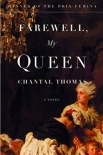Farewell, My Queen Black Moishe (short novels in english .txt) 📖

- Author: Black Moishe
Book online «Farewell, My Queen Black Moishe (short novels in english .txt) 📖». Author Black Moishe
“Good day to you, my pretty”; thus he greeted me from afar. “Have you come to inquire after the ostriches? The ducks are none too well either . . . but that’s normal for them: the water at Versailles kills them.”
Even in 1789, I was already past the age for being addressed as “my pretty,” but Laroche and I were on those sorts of terms. I knew his gallantry was quite innocent, and—why not admit it?—though it cannot be said that I encouraged him, neither can it be claimed that I dissuaded him.
The same period of time that saw the rockwork salon dry up, and the spirit of those indoor gatherings wither and die in sympathy, also witnessed the decline and death of the Menagerie’s outdoor residents. Laroche may have been a sun, but he was also a bane. First the elephant had drowned in a little pond. Barely a puddle. As the accident was such as to occasion surprise, there had been a brief inquiry, from which it emerged that at the time of falling down to rise no more, the victim was drunk. The elephant, Laroche had explained as he wept bitter tears over the loss of one of his favorite animals, needed its five daily liters of Burgundy wine. On that particular day, the beast had downed its quota somewhat quickly and in direct sunlight. Laroche had wept harder. What he had failed to mention was that he had granted himself succession rights to the privilege of the five bottles of wine! The elephant, that oh so affectionate, friendly, intelligent, gentle giant, was dead . . . An animal that wore “its nose on its sleeve,” as the Captain liked to repeat, quoting Count Buffon, whom he admired. Indeed, the reason he was often seen loitering near the entrance to the King’s Private Study was that he liked to glimpse the statue of Buffon that stood there. (He had thought at first that it was not a statue, but the great naturalist himself, stuffed and mounted!)
After the elephant came the lion: he began to lose the hair of his mane and to act unwell. The lion was not as sweet-tempered as the elephant, but he had prestige. He had been delivered to us with great pomp and ceremony as a gift from His Most Heathen Majesty the King of Senegal to His Most Christian counterpart. He was treated concurrently as ambassador and prisoner. A red carpet was rolled out for him, tracing its crimson pathway from the great marble staircase to the Apollo Salon where the King sat in state for the occasion. The lion had arrived, confined in a cage that was inlaid with precious stones and drawn by three slave girls, blacker than ebony. The first of the trio bore a little note from her country’s king stuck like a curlpaper into the complex structure of her plaited hair. That monarch informed Louis XVI that the young women were henceforth his property and that he could, at his pleasure, keep them for his own use, give them away as gifts, or feed them to the lion. Louis XVI had consigned them to the Menagerie. There the three of them lived, arms constantly intertwined, spending their time doing and undoing one another’s hair, and speaking a language punctuated by shrill bursts of laughter that made you shiver. Their gestures were sharp and enigmatic. They had contrived to communicate with our world only so they could have sumptuous fabrics brought to them. They draped the material over their bodies without sewing it. Their dressing-up sessions were also the few quiet periods in their existence: they would only whisper or gaze at each other in silence. They would appear so deeply lost in thought that if, without blaspheming, you could have attributed souls





Comments (0)